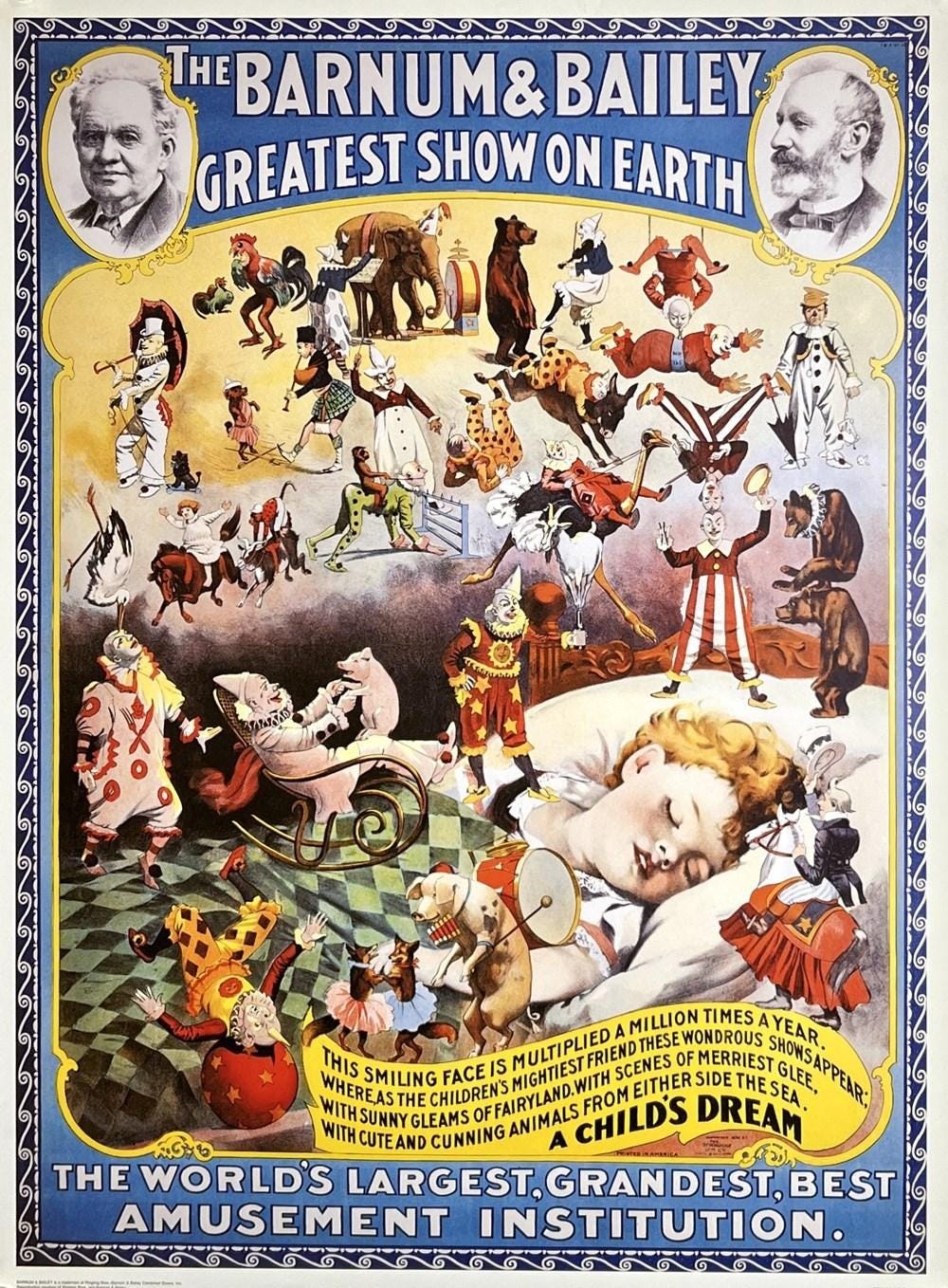⚡️A Complete Known Unknown
Episode 6: Bob Dylan, Sharon Stone, Donald Rumsfeld and the Carnival of Myth Making. From The Rolling Thunder Review to AI a deep dive into deception, ambiguity, and why the carnival always wins 🎟️
This is a story about Carnivals.
A dead politician called Donald Rumsfeld.
An actress called Sharon Stone who went by the name of Kiss.
But mostly it’s about a strange young man called Dylan who has a voice like sand and glue.
Oh, hear this Robert Zimmerman
I wrote a song for you
About a strange young man called Dylan
With a voice like sand and glue
Some words had truthful vengeance
That could pin us to the floor
Brought a few more people on
And put the fear in a whole lot moreSong for Bob Dylan A Song by David Bowie
If this episode were a video it would be Jim James’ ‘Goin’ to Acapulco’: Beautiful, dreamy, surreal & magical “arguably Jim James’ greatest performance ever”
The Myth of Bob Dylan: A Carnival Hustler at Heart 🎟️
But let’s start with carnivals. Not the sanitised, corporate branded hellscapes of modern times, but the greasepaint and sawdust carnivals of old. The kind that smelled of diesel fuel, cotton candy aka candy floss, and the faintest whiff of menace.
The young man called Dylan’s foundational lie that he honed his craft among carnies and grifters wasn’t just a fib. It was a manifesto. Because America’s true divide isn’t red vs. blue, rich vs. poor, or even human vs. algorithm. No, the real schism is between the carnies and the non-carnies.
Carnies are the cracked mirror philosophers who understand life as a hall of illusions. They know truth is a rigged game of ring toss, where the prizes are cheap but the spectacle is priceless. Reality? A rickety Ferris wheel creaking, unstable, and liable to leave you dangling upside down over the abyss. Dylan, that sandpaper voiced alchemist from Hibbing, was born carny.
His genius wasn’t in writing songs; it was in selling the myth of the songs.
The troubadour who ran away with the circus? Pure fiction. But the fiction stuck like a knife in the ribs of a culture starving for myth.
The non-carnies? They’re the rubes clutching their tickets to the Tilt-A-Whirl of rationality, demanding receipts for every magic trick. They want Dylan’s lyrics decoded, his persona taxonomised, his harmonica licks transcribed into Excel spreadsheets. Fools. They’ll never grasp that the man’s entire career is a magic act, a sleight-of-hand where the disappearing coin is the whole point of no return.
Sharon Stone and the Art of Fabricated Memories
Cut to 1975: The Rolling Thunder Revue a traveling circus of poets and starry eyed chameleons barreling across America with Dylan behind the wheel of the tour bus.

Enter Sharon Stone: 17 years old, all cheekbones and wide eyed ambition, spinning a story about being “the girl with the kaleidoscope eyes” who joined the tour. Decades later, Scorsese’s documentary would airbrush her into the myth. There’s just one problem: it didn’t happen.

Stone’s tale of Dylan plucking her from obscurity, of backstage séances and shamanic initiations was pure carny fiction. A glittering lie, as meticulously crafted as Dylan’s own carnival origin myth. When confronted in the doc, she smirks:
“It’s not a lie if you believe it.”
Here’s the rub: Stone didn’t just join the circus; she became it. Her performance in Scorsese’s hall of mirrors wasn’t deception it was alchemy. She grasped what Dylan knew in ’62: truth is a prop. The Rolling Thunder Revue wasn’t a concert tour; it was a metastasising folk opera where journalists became characters, groupies became oracles, and a teenage starlet (who wasn’t even there) became part of the scripture.
Stone’s fictional baptism into Dylan’s carnival is the Rosetta Stone for our post-truth era. Compare her doc cameo to TikTok historians who LARP as Cold War scholars, or AI-generated influencers hawking crypto. We’re all method-acting now, drafting our own myths in real time.
Dylan didn’t predict this he pioneered it. The Revue’s chaos was a beta test for the internet’s infinite scroll of curated delusions.
Why Dylan’s Mumble is a Weapon in the Digital Age
When Dylan slurs through his latter-day performances, he's not just showing his age he's evolving the con. His voice, now more gravel pit than instrument, isn't decay but deliberate obscurity. It's the sound of meaning itself dissolving in real time, a sonic rebellion against the digital age's demand for clarity. Every garbled verse is a mumbled murmur to the algorithm's hunger for clean data.
This brings us to another master of strategic opacity, a man who turned institutional doublespeak into a dark art. In 2002, while Dylan was busy mangling "Like a Rolling Stone" somewhere in Nevada, Donald Rumsfeld stepped up to a Pentagon podium and delivered what might as well have been Dylan lyrics run through a defense contractor's shredder.

Rumsfeld’s Dylan-esque Doublespeak: A Complete Known Unknown
"There are known knowns... known unknowns... and unknown unknowns." Pure poetry, really if your idea of poetry is PowerPoint slides having an existential crisis. But Rumsfeld, that unlikely beat poet of bureaucratic babble, was unknowingly channeling the same trickster spirit that animated Dylan's entire career. Both men understood that ambiguity isn't just a shield it's a weapon.
Let’s map Dylan’s chaos to Rumsfeld’s matrix:
Known Knowns: Dylan’s a shapeshifter. He’ll sell you a blues album, a Christmas LP, or a bespoke whiskey with the same dead-eyed smirk.
Known Unknowns: Which Dylan 2.0 update drops next? A TikTok influencer? A crypto bro? A Victoria’s Secret angel? Oh no silly me he did Victoria’s Secret!
Unknown Knowns: We pretend not to notice his voice now sounds like a lawnmower gargling barbed wire. Denial is the carny’s oldest con.
Unknown Unknowns: The man’s a Russian nesting doll of mysteries. Is there a bunker under Malibu stocked with lost lyrics?
Rumsfeld weaponised uncertainty to sell wars. Dylan weaponized it to sell us our longing for meaning in a world where truth’s been outsourced to algorithms.
Why Carnivals Explain Elon Musk, AI, and your Instagram Feed
We’re all carnies now. Instagram influencers, Elon Musk’s Mars colonizing circus, roll up roll up, AI “artists” they’re just Dylan’s bastard children, repackaging his chaos for the digital midway. Dylan sold his music catalog for $300 million not because he’s a sellout, but because he knows the ultimate carny truth:
Myth is the only asset that appreciates in value.
The post-literate society doesn’t read; it scrolls. It doesn’t listen; it samples. Dylan’s lyrics once dissected in dorm rooms now flash by as Instagram captions over #corecore videos. Yet their ambiguity endures, because ambiguity is the last firewall against the machines. ChatGPT can mimic his syntax, but it can’t replicate the smirk behind the words. Can it?
Coda: Or How I Learned to Stop Worrying and Love the Mumble
So here we are huddled in the algorithmic funhouse, where deepfakes of Rumsfeld hawk crypto and Sharon Stone’s apocryphal carnival baptism plays on loop. The rubes think they’re spectators. They’re not. They’re marks, buying overpriced tickets on Ticketmaster to a show where the script’s written by ChatGPT and the clowns are all ex-Twitter CEOs.
To “Love the Mumble” is to spit in the eye of the prompt. It’s to weaponise your own illegibility, to let your voice fray into static until even the surveillance AIs shrug and mutter “404: Soul Not Found.”
Dylan’s shredded croak? That’s not decay it’s evolution, baby. A survival trait for the post-literate hellscape, where clarity is just another data point to exploit.
So mumble. Glitch. Let your truth dissolve into Rumsfeldian unknowables. Disappear into the crowd with Dylan’s smirk plastered on your face and a stolen harmonica in your back pocket.
As the man himself might rasp through a cloud of neural-net hallucinations: “The answer, my friend, isn’t blowing in the wind—it’s trapped in your spam folder.”
P.S. — If this episode feels like a rigged game of whack-a-mole, good. The carnival always cheats. Now grab your cotton candy and pray the Ferris wheel doesn’t collapse.









I had to stop in the middle of reading to search for Heaven’s Door whiskey near me. Love your description of Dylan’s voice and the carnival scene.
Two things.
• Todd Haynes’s movie is great. He gets the carny and mask thing. I mean, cmon. Cate Blanchett as Dylan.
• my favorite description of Dylan’s voice – I have heard it attributed to Woody – is “dirty water going down the drain.”